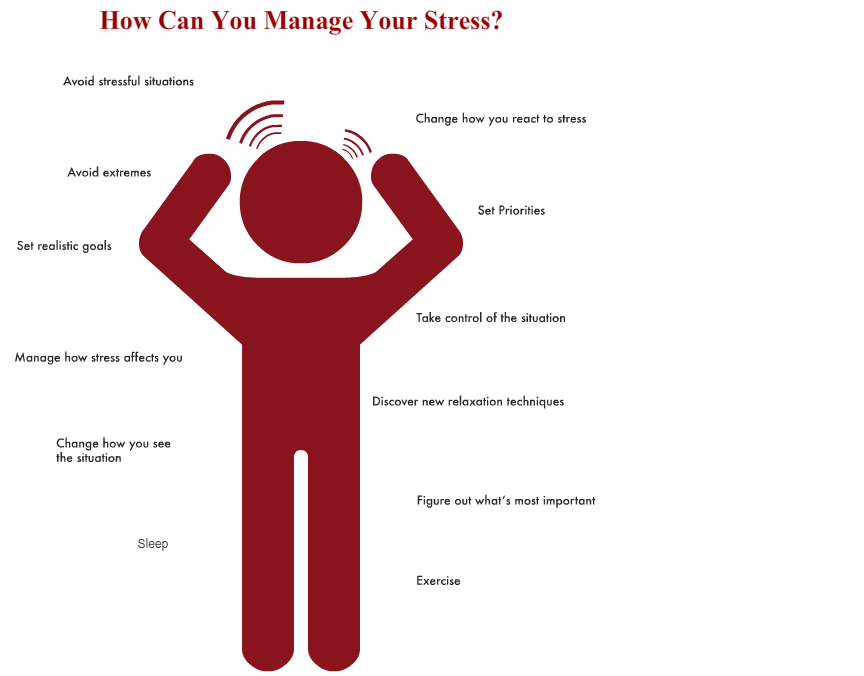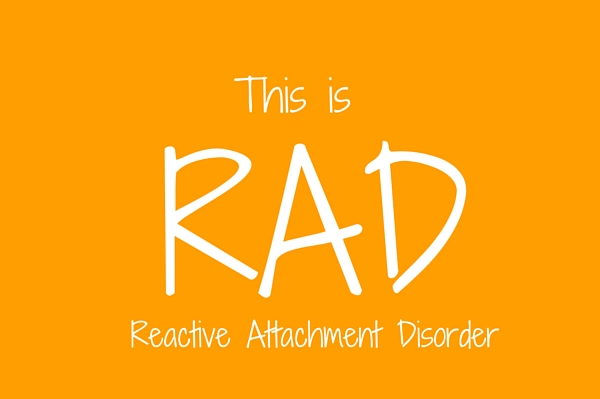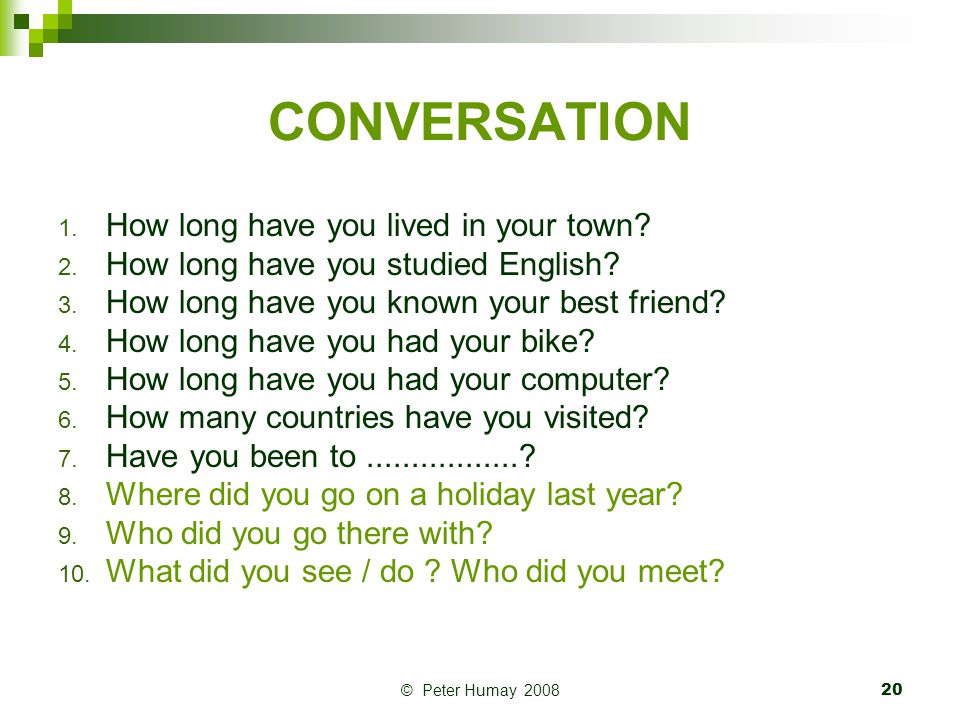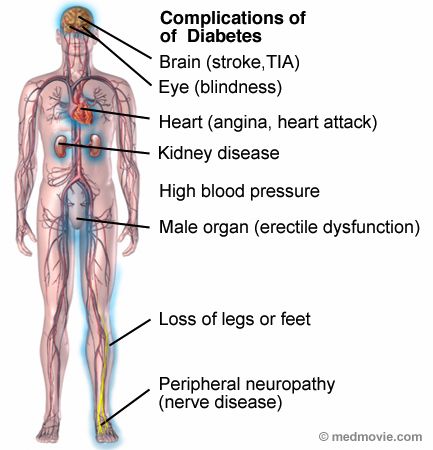How to sleep with stress
How to Get a Good Night Sleep When Stressed
Posted: August 2, 2020
Another sleepless night spent worrying as you stare at the ceiling? Stress and anxiety can often keep you from getting the sleep you need.
Many people with anxiety disorders have trouble sleeping and at some point it’s hard to tell whether you’re having trouble sleeping because you’re anxious, or you’re anxious because you can’t sleep. The answer may be both. The fact is that stress and anxiety can cause sleeping problems, or worsen existing ones. Too little sleep affects your mood and can contribute to irritability and sometimes depression. Vital brain functions occur during different stages of sleep that leave you feeling rested and energized and that help you learn and build memories.
Here are a few tips to help you practice good “sleep hygiene” so you can wind down both your body and mind:
- Go to bed and wake up at the same time every day, even on weekends.
- Be Mindful.
Shortly before bedtime, try a relaxation strategy that incorporates mindfulness, deep breathing, or meditation, all of which boost sleep time and quality.
- Turn Screens Off Early. The blue light emitted by digital devices—including TVs, phones, laptops, and tablets—can throw off your body’s internal clock, so avoid them before bedtime. Finding a tech-free way to wind down can help soothe stress.
- Take a Hot Bath or Shower to Relax. Going from warm water into a cooler bedroom will cause your body temperature to drop, naturally making you feel sleepy.
- Count Sheep. It might sound a little silly, but it works. The reason being when you keep your brain focused on one thing helps you power down. You can also try focusing on your breathing, consciously taking deep breaths in and out, until you feel calmer.
- Avoid caffeine, alcohol, large meals, foods that induce heartburn, and drinking a lot of fluid for several hours before bedtime.
- Exercise Regularly.
 Exercise is a great stress reliever and has been shown to improve the quality of sleep, particularly for people with insomnia. But make sure your more intense workouts aren’t too close to bedtime. Try to get your workouts in at least three hours before you turn in.
Exercise is a great stress reliever and has been shown to improve the quality of sleep, particularly for people with insomnia. But make sure your more intense workouts aren’t too close to bedtime. Try to get your workouts in at least three hours before you turn in.
- Try Worrying Earlier in the Day. When your mind is racing with concerns while you’re trying to fall asleep, that can make it nearly impossible to drift off. Plan for 15 minutes during the day to process these thoughts. Writing a to-do list or thinking about solutions can be a healthy way to deal with stress and prevent it from interfering with sleep later.
- Have an herbal tea. Chamomile and other herbal teas can help relax and sooth the body, which can make it easier to fall asleep. Try pairing it with a good book and making it a mini-routine to end your night.
- If you are having trouble falling asleep after 20 minutes of turning off the lights (or if you wake up and can't fall back to sleep in 20 minutes), get out of bed and do something relaxing until you feel sleepy - like that cup of tea and a book.
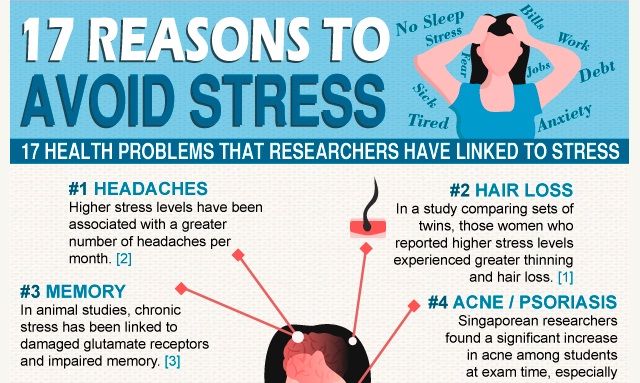
Tags
Anxiety, Tips and Advice
How to Sleep When You’re Stressed and Anxious (16 Tips to Get Zzz’s)
Jump to section
Stress and sleep
How to relieve stress and anxiety to improve sleep
Set yourself up for healthy sleep when stressed or anxious
Most of us have been there before.
A stressful day at work, an argument with a partner, or an event during the day can leave your head spinning. Learning how to sleep when stressed and anxious is important for a variety of reasons.
It doesn’t take long before sleep quality drops and you start to develop a sleep problem. This stops you from getting a good night's rest because you’re too stressed to sleep.
With anxiety driving your mind into overdrive, it can be hard to stop ruminating and relax at the end of the day. Your mind loops around the same track, keeps going over the same conversation, or worries the same unanswerable questions. Often, sleep becomes unattainable.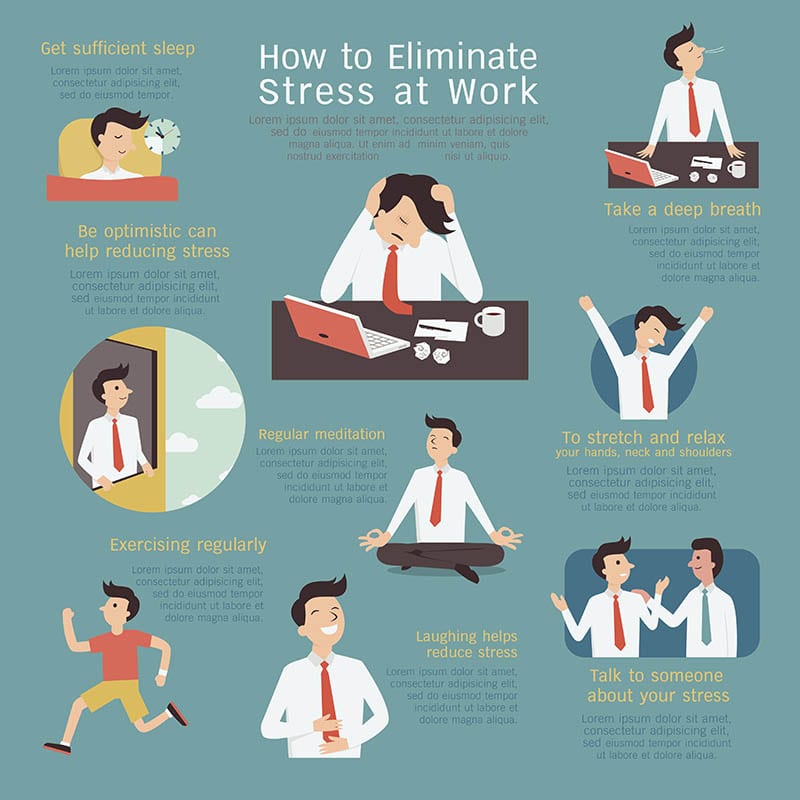
So what comes first, lack of sleep or anxiety?
It’s not so clear cut, one might bring about the other.
Let’s break down both to gain some more insight into how these two issues are related.
Stress and sleep
What happens to our brains when we get anxious?
Our amygdala, a part of the limbic system in the brain, controls our fight, flight, or freeze response. When we are anxious, this is the part of the brain that is first activated.
Once the initial stress response diminishes, we can then get stuck repeatedly thinking about whatever the stressor was.
In the case of chronic stress, our brains and bodies remain in a heightened state of arousal. This is an automatic stress management function and leads to multiple issues.
For example, in the body, constant stress can manifest as tense muscles, gastrointestinal issues, rapid breathing, increased heart rate, fatigue, teeth grinding or clenching as well as a plethora of other symptoms both seen and unseen.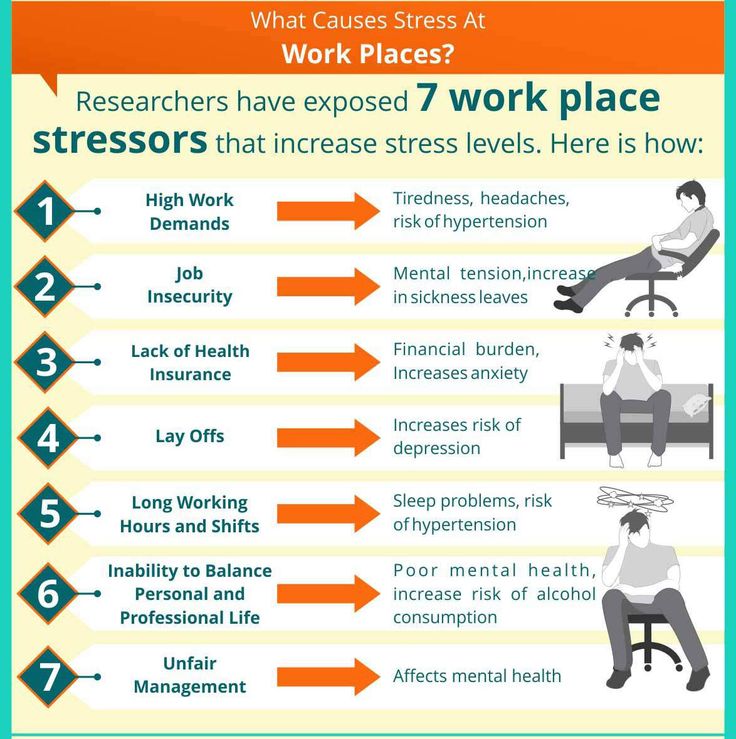
Sleep disturbances are also often a key symptom that the health community uses to diagnose an anxiety disorder or sleep apnea.
Let’s say your brain is stressed and fixated on something. Or, the demands of your life or career leave you constantly worried. There is a higher probability that you are not sleeping as well as you could be. This results in sleep deprivation.
When we sleep, our bodies are able to heal and process events that happen during the day. When we are anxious, our brains have a harder time turning off and allowing sleep to take over, thus decreasing our body's ability to heal itself.
Sometimes, even when we do find sleep, studies have shown that REM sleep (rapid eye movement), a key phase of our sleep cycle, can be disrupted due to a high level of stress.
This can include nightmares for some that cause a further sleep problem.
Sometimes we can become so worried about not being able to get enough sleep that it becomes a self-fulfilling prophecy.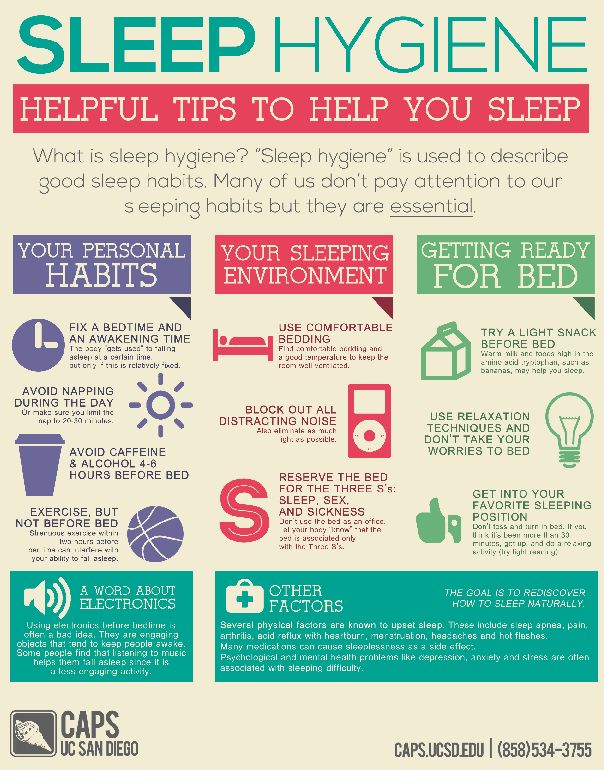 We add sleep anxiety to our already anxious state.
We add sleep anxiety to our already anxious state.
Our anxiety grows as we anticipate a sleep disturbance, depriving us of the very thing we are worried about not getting enough of — sleep.
It is probably challenging at best to separate the two from one another.
Let’s talk about the things you can do throughout the day and leading up to bedtime to increase the likelihood that stress will not impact your sleep.
How to relieve stress and anxiety and improve sleep
Preparing yourself for a good night’s rest protected from stress and anxiety begins long before you hit your pillow. Let’s look at tips you can follow during the day that will help you rest easier and sleep better at night.
During the day
Here are six tips you can use during the day to help you learn how to sleep when stressed:
1. Focus on what is within your control
Anxiety is a normal part of the human experience. There will inevitably be times in our lives that our anxiety symptoms peak.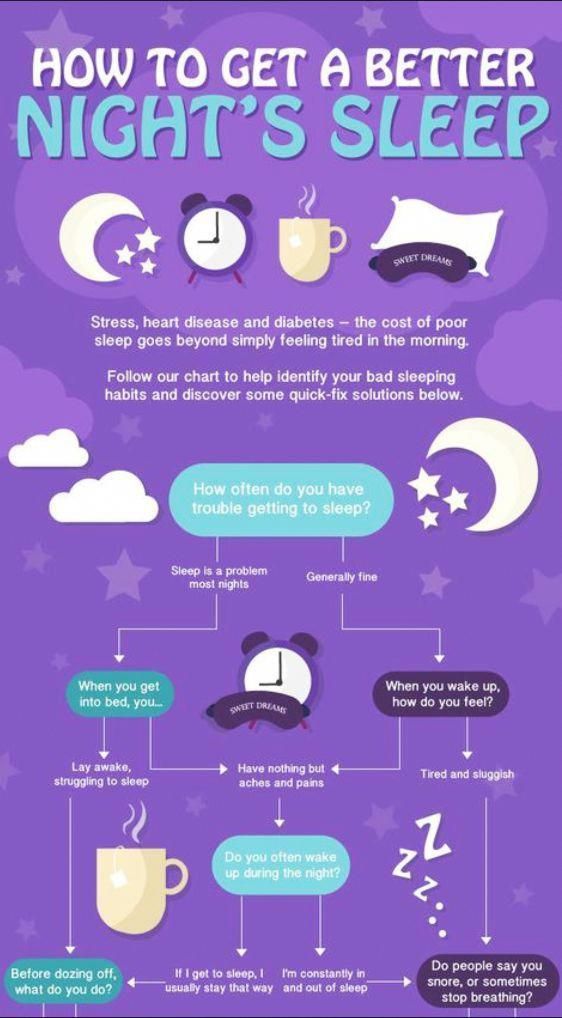 Identifying tools to refocus your energy and gain more control over your habits can help you cope with symptoms as they arise.
Identifying tools to refocus your energy and gain more control over your habits can help you cope with symptoms as they arise.
For example, aim to understand the difference between a physical symptom (such as uncomfortableness) and mental factors such as social anxiety. Both can contribute to sleeping problems.
2. Eat healthily
What we eat is something we can control. When we eat things that are unhealthy, our bodies have a response to them. If we eat junk food regularly, our bodies increase inflammation and struggle more to manage anxiety.
However, when we aim to eat a healthy diet full of fresh foods, the opposite happens, and our bodies and minds are given the tools to thrive. This minimizes sleep loss.
3. Exercise
One way to help your sleep and anxiety levels is to exercise. When we do so, our bodies release feel-good chemicals that help us better manage stress and sleep.
Physical activity can also be a great way to reduce negative thoughts and acute stress in a healthy way.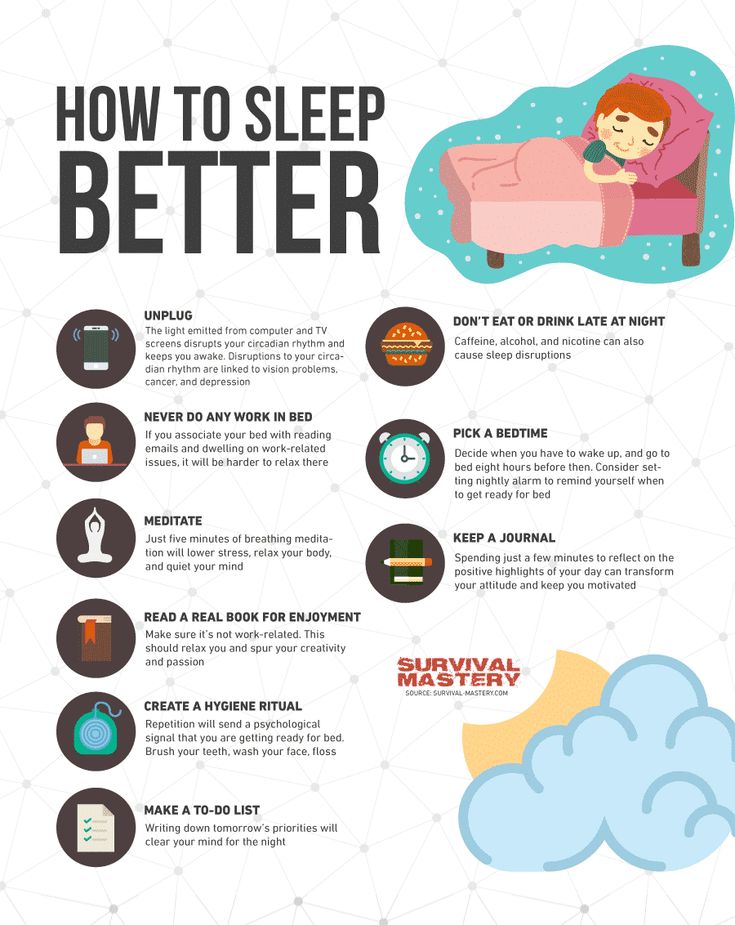
Timing is everything, though, as you want to avoid exercising close to bedtime as it can act as a stimulant. Instead, aim to get exercise earlier in the day whenever possible.
Also, consider practicing progressive muscle relaxation or a deep breathing exercise. These can help ease sleep difficulties, reduce anticipatory anxiety, and result in more restful sleep.
4. Reframe your thoughts
Automatic anxious thoughts, also called cognitive distortions, are one way anxiety shows up for many of us. Some common ones are catastrophizing, filtering, all-or-nothing thinking, "should" statements, and mindreading.
For example, perhaps you got feedback from 20 colleagues, and out of those, one of them was negative.
If you were filtering, also known as disqualifying the positive, you might focus on that one negative piece of feedback rather than seeing it in the context of the whole.
To overcome any automatic thought, there is an easy-to-remember three-step process.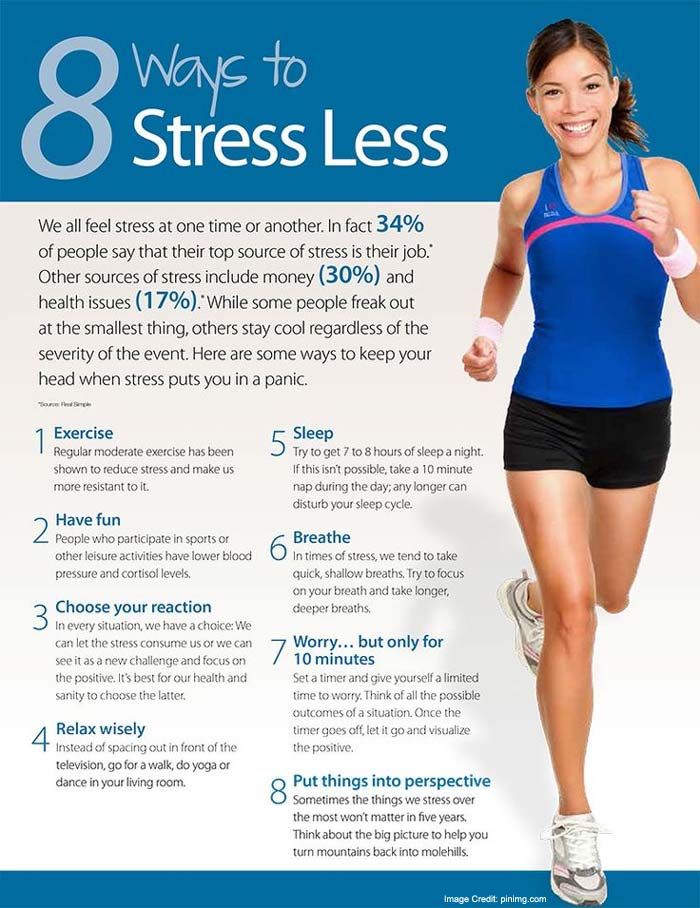
- First, name it. “I am disqualifying the positive feedback I am receiving.”
- Second, check your evidence. In the example of 20 colleagues mentioned above, there were 19 positive feedback statements and one negative. The negative feedback might be something to potentially take into consideration. However, you do not have evidence that it is an accurate critique of your performance given the other feedback you received.
- Third, reframe it. If you can’t get to a positive, try to get to a neutral reframe. For example, “I will work on the area that was brought to my attention. But overall, I can see that my colleagues like and appreciate the work I do.”
5. Practice self-compassion
It is easy to feel overwhelmed from time to time about issues that arise in our lives.
We are often harder on ourselves than we would be on a friend, colleague, or family member. We have a strong inner critic. Next time you make a mistake or feel like you are somehow out of step with your values, try to treat yourself as you might a friend.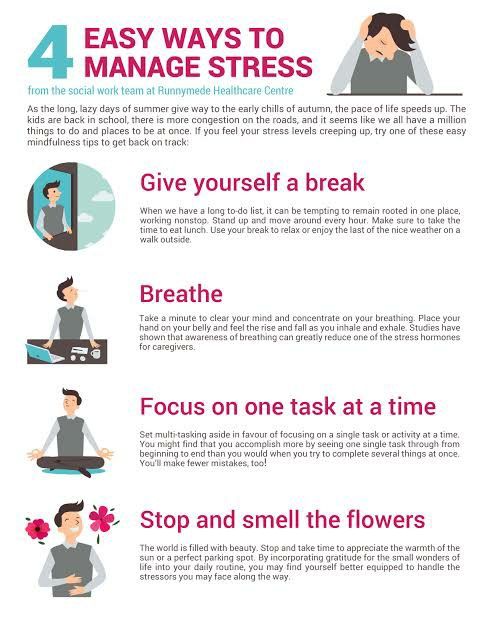
Would you be critical, judgmental, or mean to a friend who came looking for support? Chances are, you would be compassionate and understanding. Try to do the same for yourself and speak to yourself in a kind and supportive manner.
6. Develop a mantra
Find a phrase you can say to yourself that reminds you to keep things in perspective. When developing a mantra, keep it simple. No more than two or three sentences. It can be helpful to have the first part be something relaxing and the second to be forward-facing.
For example: “Take a breath. It will all be okay.” Or, “It is okay to relax. I will get through this as I have done in the past.” Play around with it until you find the right mantra that resonates for you.
Before going to bed
Here are five tips you can use before going to bed to improve your quality of sleep:
1. Develop a nightly routine
Consistently doing the same thing before bed can help your brain identify when it is time to start shutting down for the day. It cues the brain that you will be going to sleep shortly and allows it to start to unwind a bit.
It cues the brain that you will be going to sleep shortly and allows it to start to unwind a bit.
Keeping this routine as consistent as possible is helpful, so the brain recognizes when you do it.
For example, you may wash your face, brush your teeth, and then read a book. Or some like to have a cup of tea or stretch before lying down. There is no right or wrong routine as long as it is something you find soothing and begins at least 30 minutes prior to you lying down for the night.
2. Make lists
If you are the type of person who has a hard time shutting down your mind, try making lists for the next day as you get ready for bed. Are there agenda items for tomorrow that you want to make sure you do not miss? Write them down.
When we do this, we are training our brain that it does not need to hold onto that information and potentially keep us up thinking about it. It relaxes a bit knowing that it is captured somewhere that you can read the following day.
3. Turn off devices
In this modern age, this can be a real challenge for many. Sadly, even with light filters turned on, our devices rob us of melatonin, a key hormone our bodies need to help us fall asleep.
Additionally, consider what type of thing you are doing on the device. This could be one last email or scrolling through social media accounts.
You can actually be activating your mind and causing it to become stimulated rather than cueing it to begin the relaxation process. This contributes to poor sleep hygiene and can actually increase nighttime anxiety.
4. Avoid stimulants
Ensure you are setting yourself up for deep sleep by avoiding alcohol, caffeine, and tobacco in the hours leading up to bed. Caffeine, even several hours before bedtime, can disrupt sleep and cause it to be allusive.
Additionally, while many think that alcohol will help sleep, it can actually do just the opposite. In fact, frequently consuming alcohol before bedtime will have you waking consistently in the middle of the night.
Try replacing your nightcap with a cup of chamomile tea instead, which can help reverse poor sleep quality.
5. Practice mindfulness
Practice some sort of mindfulness. A great one to do before bed is a body scan.
Start by finding a comfortable position, either sitting or lying down. Take a few deep breaths.
Beginning at your feet, slowly move your attention up your body. As you move from your feet to your legs, belly, shoulders, head, and neck, without judgment, simply notice if you are holding any tension in those areas.
Our goal here is to only make a note of it and accept it. If possible, in your mind’s eye, see if the tension you notice has a shape, color, temperature, or texture. Does it move or change as you notice it? Make sure you continue to breathe throughout this exercise.
By bringing awareness to the tension you are feeling, it can often limit its impact on you.
Using other relaxation techniques can also help you successfully practice mindfulness.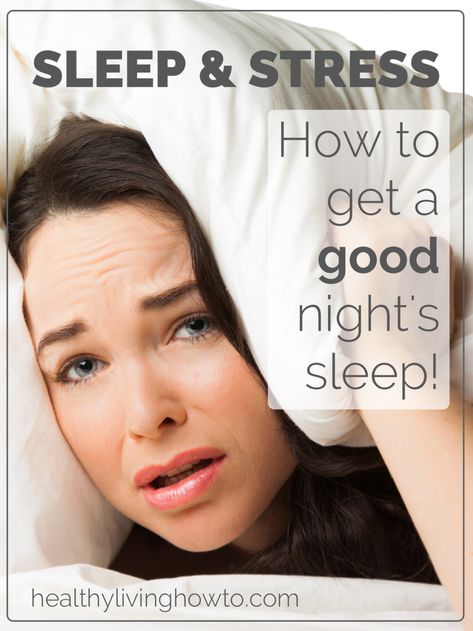 This could be guided imagery, yoga poses, essential oils, or mindfulness meditation.
This could be guided imagery, yoga poses, essential oils, or mindfulness meditation.
Guided meditation apps can be a great way to deal with a stressful situation and to relieve muscle tension.
Transform your room into a sanctuary for sleep
Here are five tips for transforming your bedroom to promote better sleep:
- Make your bed a relaxing haven: Make sure the bed feels firm enough (but not too firm) for you. Choose a pillow that helps you keep your spine aligned as you sleep. Investing in a weighted blanket can be helpful for those who suffer from anxiety. It also assists in managing stress reduction at night.
- Block out the light: Even light from a cable box, phone, or alarm clock can disrupt sleep. Limit any light sources that you can, install blackout shades or curtains, and consider covering or putting tape over indicator lights on electronics. Investing in a good sleep mask is another way to keep all of the annoying light sources at bay.
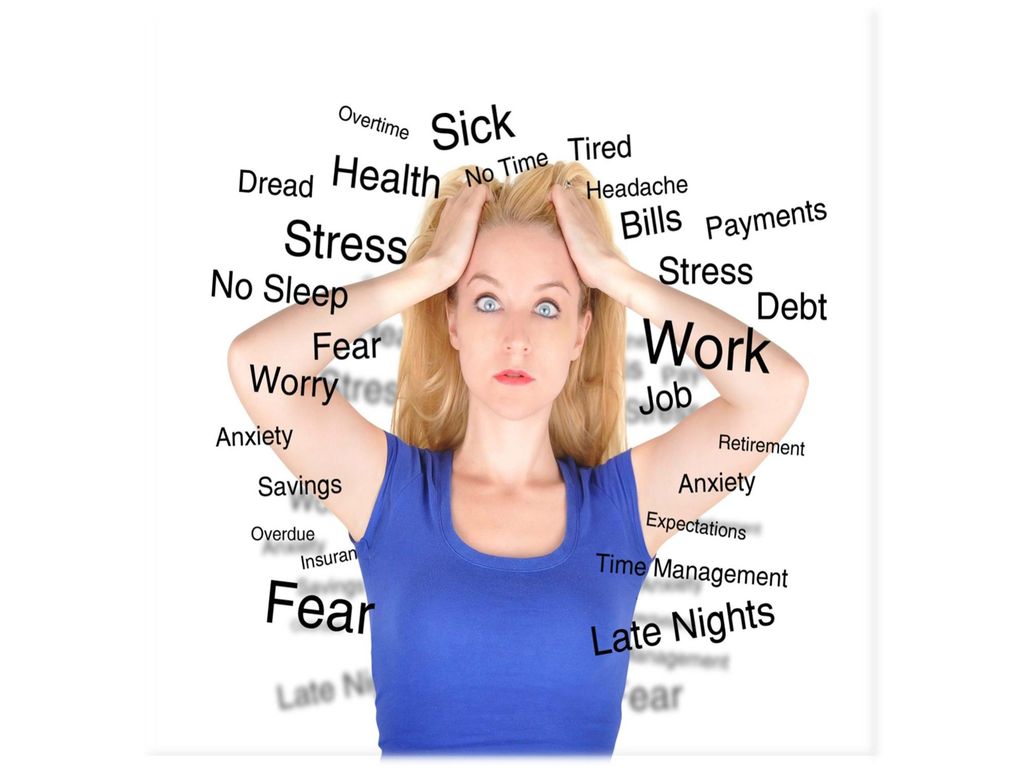
- Invest in a sound machine: Often, unusual sounds can wake us from sleep. Having some sort of sound machine or noise masking app can help keep a consistent sound. It drowns out other potentially disruptive noises.
- Turn clocks away from you: When we can’t sleep, we tend to focus on the clock. That isn't helpful. To avoid this, turn your clock away from your gaze before you lay down. If you use your phone for a clock, make sure to put it far enough away so you won't be tempted to pick it up to check the time.
- Find your Goldilocks temperature: Aim for a temperature that is not too hot nor too cold. Either extreme can disrupt sleep for many. Finding the right temperature will result in better sleep. Some people find that wearing socks to bed helps them fall asleep without layering on too many blankets that will cause overheating later.
Set yourself up for healthy sleep when stressed and anxious
If you try all of these steps and still struggle to sleep soundly, consider reaching out to your doctor or a sleep expert for support. Treatments for a generalized anxiety disorder or a sleep disorder can vary significantly.
Treatments for a generalized anxiety disorder or a sleep disorder can vary significantly.
One mental health treatment, Cognitive Behavioral Therapy for Insomnia (CBT-I), is an evidence-based therapeutic technique that looks at the interplay of thoughts, feelings, and behaviors that can impact sleep.
By working with a trained therapist, even those who have struggled for years with their sleeping habits can find relief and a restorative night of slumber.
Your sleep and anxiety are interconnected. Finding ways to better manage one will ultimately help you find relief with the other.
For more help combatting stress and improving your overall well-being, consider working with a BetterUp coach.
Somnologist named six ways to fall asleep under severe stress
Plot:
VM Exclusives well-chosen ambient sounds - all this can help to fall asleep under stress. In addition, you can speed up falling asleep by doing household chores. A somnologist, head of the FMBA Sleep Medicine Center, Alexander Kalinkin, told Evening Moscow about this. nine0003
A somnologist, head of the FMBA Sleep Medicine Center, Alexander Kalinkin, told Evening Moscow about this. nine0003
According to the specialist, anxiety often causes problems with sleep.
— Negative and positive stresses are one of the main causes of insomnia. In an acute situation, falling asleep is a very difficult task, it all depends on the level of emotional stress that a person experiences, the expert said.
The interlocutor of “VM” emphasized that it is possible to speed up falling asleep with the help of physical activity. However, it should not be too intense, it should not be resorted to right before bedtime: this will only worsen the situation, Kalinkin warned. nine0003
It is also very important to try to relax the muscles, the specialist advised.
— If a person has the ability to control his condition, then he can improve falling asleep by self-hypnosis due to muscle relaxation and disconnection from the emotional situation that has arisen, — the expert noted.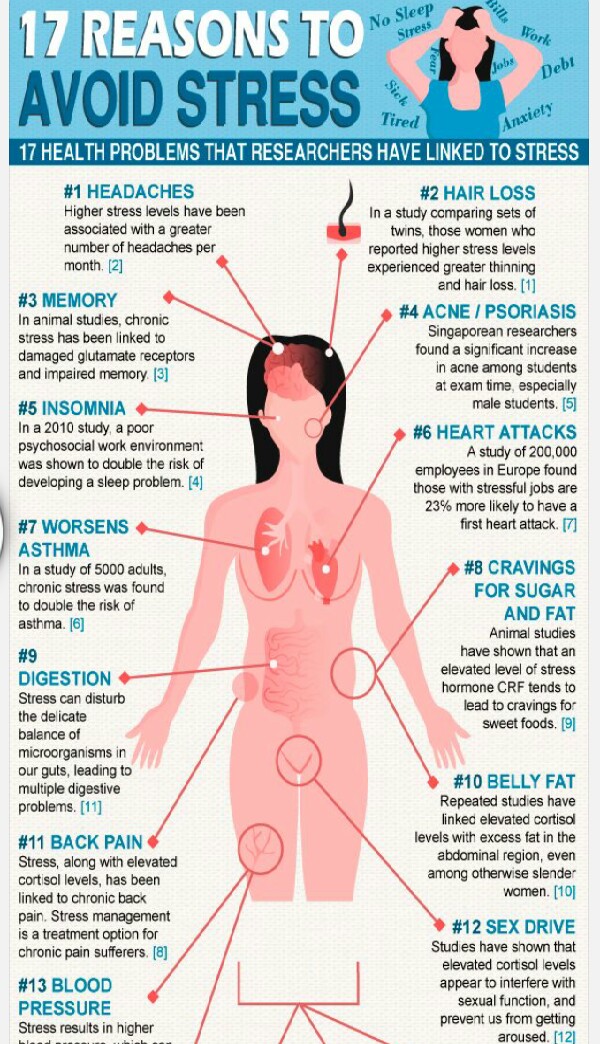
Drinks containing caffeine, in particular, energy drinks, can also affect the quality of sleep, the specialist emphasized. If you have problems with sleep, it is better to refuse them, the somnologist advised. nine0003
Kalinkin drew attention to the fact that you should not drink alcohol to make falling asleep easier.
— It is better not to take alcohol. Yes, after alcohol, a person will fall asleep faster, relax, but he will wake up earlier and still be overwhelmed and tired. Therefore, it is better to refuse this method, the specialist recommended.
It is necessary to fall asleep in a dark room, the interlocutor of “VM” noted. In addition, before going to bed, it is advisable to give up the phone and computer, as well as other light sources, Kalinkin emphasized. nine0003
Properly chosen environmental sounds can also help overcome insomnia, the physician noted.
- A good way to fall asleep quickly is to create "white noise". For example, the sounds of the sea, falling water, waterfall, foliage.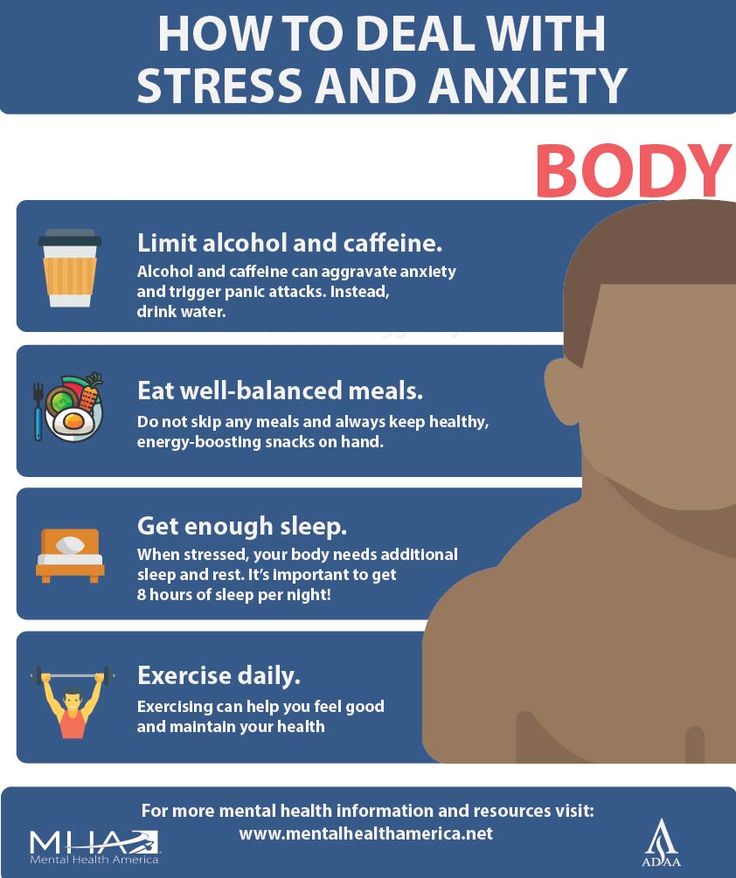 All this distracts a person from thoughts. You can put a quiet movie on your phone, but the screen should not be turned on, Kalinkin recommended.
All this distracts a person from thoughts. You can put a quiet movie on your phone, but the screen should not be turned on, Kalinkin recommended.
If you can't fall asleep for twenty minutes, you can do household chores, the specialist noted. At the same time, the lighting in the room should not be bright. After a while, it will be easier for a person to tune in to sleep, the interlocutor of VM emphasized. nine0003
All of the above methods also help with chronic insomnia, which lasts more than three months, emphasized the interlocutor of "VM". At the same time, if prolonged insomnia is caused by constant stress, it is important to eliminate the problem, the specialist noted.
- A constant stimulus will not contribute to the quality of sleep. If, for example, a person does not like his work, he cannot fall asleep because of this, you need to either change work or change your attitude towards it, the somnologist concluded.
Health Experts somnologist
How to improve sleep if you are stressed? Expert advice on how to get rid of insomnia
Events in the world are developing unpredictably.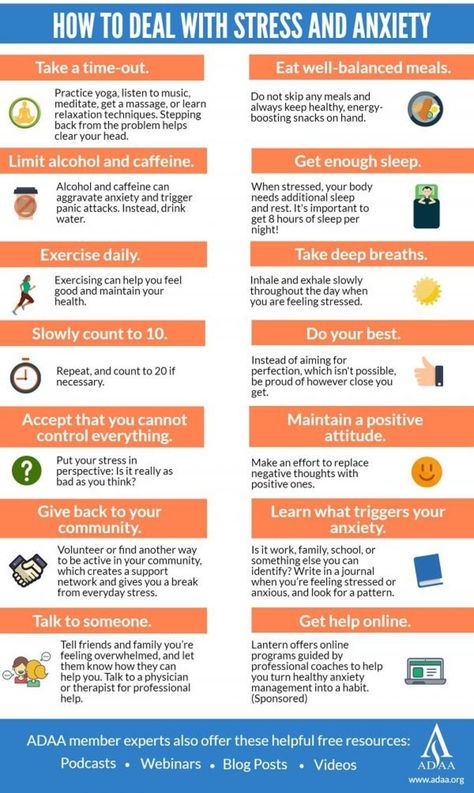 Disturbing news makes many people feel a lot of stress, anxiety, and anxiety. Constant nervous tension negatively affects sleep. Some begin to experience problems falling asleep, others wake up at night and then cannot fall asleep, and others develop chronic insomnia. nine0049
Disturbing news makes many people feel a lot of stress, anxiety, and anxiety. Constant nervous tension negatively affects sleep. Some begin to experience problems falling asleep, others wake up at night and then cannot fall asleep, and others develop chronic insomnia. nine0049
Sleep disturbance against the background of severe stress is a physiological reaction of the body, the so-called adaptive insomnia Nervous tension passes, sleep normalizes. However, if the stressful situation continues for a long time, it can lead to persistent sleep disorders, as well as the development of somatic pathologies. nine0003
In this article, I will give some recommendations that will help you cope with stress, reduce nervous tension, and normalize sleep.
How are sleep and stress related?
Sleep is a physiological state that is characterized by a reduced reaction to the outside world, relaxation of all body systems. Stress is a defensive reaction to potential or real danger, accompanied by intense emotional and physical stress. nine0003
Stress is a defensive reaction to potential or real danger, accompanied by intense emotional and physical stress. nine0003
The higher the level of stress, the more pronounced sleep disturbances 2.3 . The lower the quality of sleep, the greater the anxiety 4 . As a result, we get a vicious circle that just needs to be broken. If this is not done, then the consequences for health will be the most negative. We talked more about how insomnia affects the state of the body in an article on sleep biohacking.
How does sleep change under stress? Research results
The importance of sleep in human life and its relationship with stress has been studied in many studies. Most scientists agree that one of the most important functions of normal physiological sleep is the relaxation of the nervous system, ensuring the full functioning of the body during wakefulness.
As the researchers suggest, this may be due to the cessation of stress during sleep, a decrease in cortisol levels, and the production of melatonin, which has an anti-stress effect.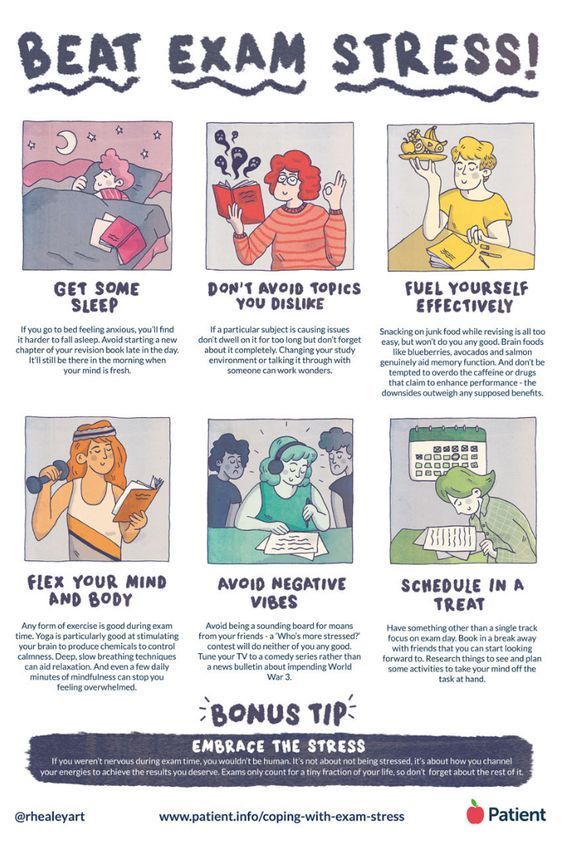 nine0003
nine0003
After scientists discovered the phases and stages of sleep, a large number of experiments were conducted to study the effect of nervous tension on its structure. The vast majority of studies have proven the negative impact of emotional stress on sleep. Thus, the subjects increased the time to fall asleep, the number of awakenings, decreased the representation of delta sleep and the overall efficiency of sleep 5 , i.e., the changes were of a maladaptive nature.
nine0002 One of the latest studies, conducted on the basis of the Moscow Sleep Center, was devoted to the study of the effect of acute and chronic stress on sleep 6 . The experiment involved healthy men and women aged 21 to 33 years, as well as patients with insomnia caused by chronic emotional stress, aged 21 to 40 years. As a result of the study, it was found that under the influence of acute stress in all healthy participants of the experiment, regardless of the psychological characteristics of the personality, the parameters of sleep changed: the time to fall asleep, the number of awakenings, and the total time of wakefulness within sleep increased.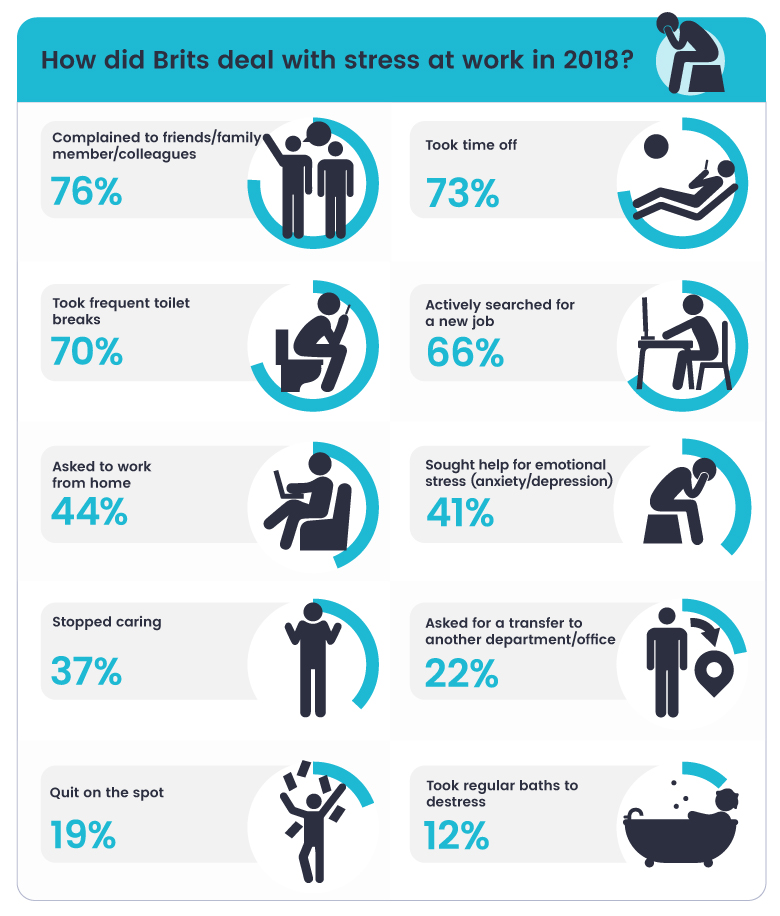 In patients who were under the influence of chronic emotional stress, gross violations of all indicators of the sleep structure were revealed: there was an increase in the number of awakenings, wakefulness, duration of the first stage of sleep, as well as a decrease in the duration and representation of delta sleep. nine0003
In patients who were under the influence of chronic emotional stress, gross violations of all indicators of the sleep structure were revealed: there was an increase in the number of awakenings, wakefulness, duration of the first stage of sleep, as well as a decrease in the duration and representation of delta sleep. nine0003
Another Saudi Arabian study also found a statistically significant relationship between stress and sleep quality. The experiment involved male and female medical students from the King Saud bin Abdulaziz University of Medical Sciences in Riyadh. The results were assessed using the Pittsburgh Sleep Quality and Stress Index and the Kessler Psychological Stress Scale.
The study showed a high prevalence among students of sleep disorders (76%) and stress (53%) with a statistically significant relationship (p<0.001). Logistic regression found that students who did not suffer from stress were less likely to have poor sleep quality (OR=0.28, p<0.001), and the risk of insomnia was almost four times higher for those students whose cumulative GPA was less than 4.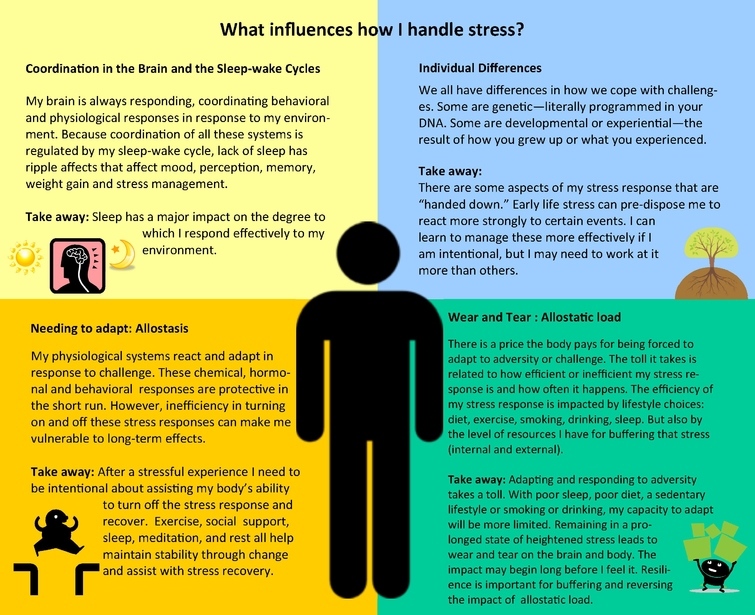 25 (OR=3.83, p=0.01) 7 .
25 (OR=3.83, p=0.01) 7 .
How to reduce stress and improve sleep?
Sleep disorders caused by nervous tension require an integrated approach. Taking sedatives and sleeping pills can help in the short term, but if they are canceled, the problem will return, so in order to achieve a lasting result, you need to adjust your lifestyle:
-
Limit information flow. Reduce time spent watching news broadcasts. Before going to bed, completely eliminate the use of gadgets for 1-2 hours. If you find it hard to stop reading the news, you can limit yourself to headlines for a few days. So, you will be aware of what is happening, but do not go headlong into the negative. nine0003
-
To refuse from bad habits. Alcohol and nicotine destroy the nervous system, and if you abuse them, you will inevitably encounter sleep disorders. If possible, give up bad habits completely. If it is extremely difficult for you to do this right now, at least try to minimize the use of alcohol and smoking.

-
Add physical activity. Any moderate physical activity is good for the nervous system. You don't have to train to the point of exhaustion. To sleep better, daily jogging and moderate exercise appropriate for your fitness level will suffice. nine0003
-
Eliminate eating disorders. Improper nutrition can also cause insomnia, especially if you like to eat before bed. Review your diet and nutrition system. Eliminate heavy fatty foods, canned, fried foods, fast food from the diet. Eat more vegetables and fruits. Eat dinner 2-3 hours before you go to bed.
-
Provide additional support to the nervous system. Some vitamins, minerals, plant extracts, amino acids have mild sedative properties, contribute to the normalization of metabolic processes in neurons. The complex intake of dietary supplements with calming components can help reduce nervous tension and improve sleep quality. nine0003
Which dietary supplements can help with sleep disorders?
With a pronounced stress response, three types of disorders are most common: difficulty falling asleep, interrupted sleep, early awakening 8 .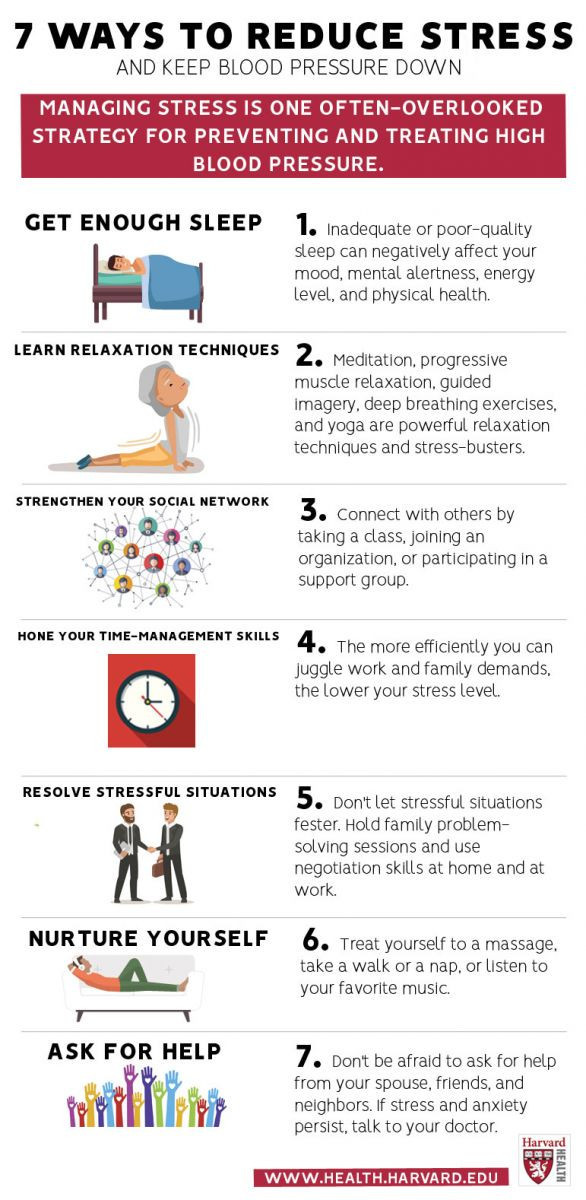 During the period of increased anxiety, all of these disorders can be observed.
During the period of increased anxiety, all of these disorders can be observed.
If you are having difficulty falling asleep, I recommend paying attention to the following complexes: nine0003
-
Reason with Melatonin is a soluble hot drink to improve sleep based on vitamins, minerals, amino acids and beneficial plant extracts. The complex has a high degree of assimilation. To achieve a therapeutic effect, it is enough to dissolve 1 sachet in a glass of hot water and drink a drink 30-40 minutes before bedtime.
-
"Sleep Formula Express" - a complex based on plant extracts of passionflower and griffonia (source of 5-HTP), which have a mild sedative and hypnotic effect 9.10 . Course reception of the complex can accelerate falling asleep, have a positive effect on the duration and depth of sleep. Adults are advised to take 2 tablets of the complex 30-40 minutes before bedtime. In case of awakening, it is allowed to dissolve 2 additional tablets at night.

-
"Magnesium chelate" - contains readily available magnesium in a chelated form, helps support the nervous system, increase stress resistance, and normalize the emotional background. Taking magnesium regularly can help reduce levels of subjective anxiety and stress 11 , thereby improving the quality of sleep. Adults and children over 14 years of age "Magnesium chelate" is recommended to take 1-2 tablets per day. The duration of admission is at least 1 month.
If you often wake up at night, then a complex intake of bioadditives can help you: "Reason with 5-HTP", "Sleep Formula" and "Magnesium Chelate". The regimen and dosage are similar to those recommended above.
Those who suffer from early awakenings can try this combination: Phyto-Melatonin Boosted Sleep Formula, PhytoHypnosis and Magnesium Chelate. "PhytoHypnosis" is recommended to take 2 tablets immediately before falling asleep, "Sleep Formula" 2 capsules in the evening, "Magnesium Chelate" 1 tablet daily in the afternoon.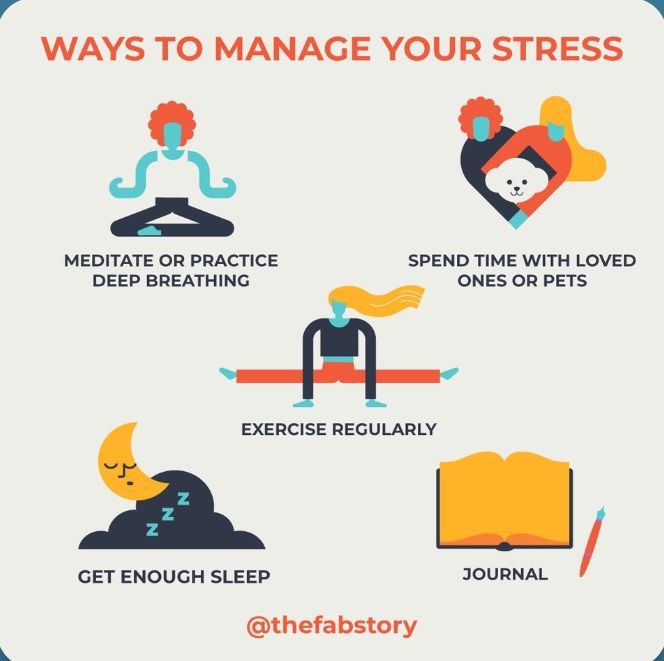 nine0003
nine0003
All components that make up dietary supplements are well combined, enhancing each other's action. The duration of any course depends on the individual characteristics of the body and the severity of sleep disorders, but on average it ranges from 1 to 3 months. Before starting the reception, it is advisable to consult with a specialist.
1 Poluektov MG, Levin Ya. I. Sleep disorders and their treatment. Journal of Neurology and Psychiatry. S. S. Korsakov. 2010; 110 (9) :70–75.
2 Jessica M Blaxton, Cindy S Bergeman, Brenda R Whitehead, Marcia E Braun, Jessic D Payne, May 2017 Agorastos Agorastos, Miranda Olff, September 2021.
4 Sleep and stress. K N Strygin, April 2011 Sleep and stress. Ros. physiol. magazine them. I. M. Sechenova, 2011, 97(4): 422-32.
6 Strygin K.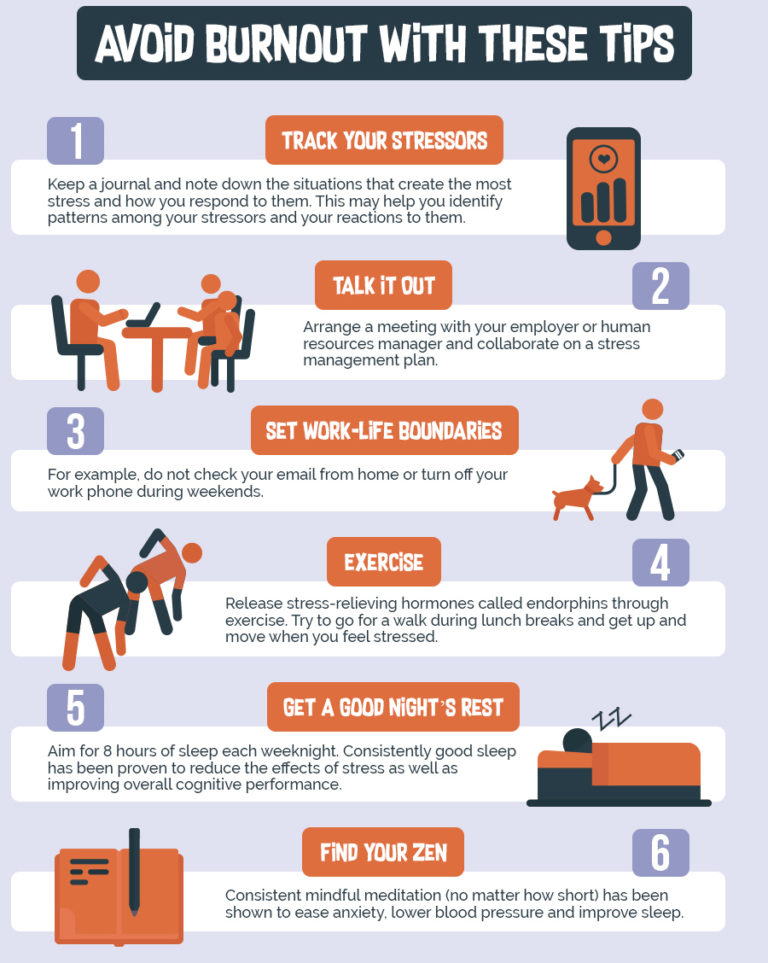 N. Influence of stresses of different modality on the sleep-wake cycle of a healthy person. Dis. … cand. honey. Sciences. Moscow, 2007: 27.
N. Influence of stresses of different modality on the sleep-wake cycle of a healthy person. Dis. … cand. honey. Sciences. Moscow, 2007: 27.
7 The prevalence and association of stress with sleep quality among medical students. Almojali A.I., Almaki S., Alotman A.S., Masuadi E.M., Alakil M.K. J Epidemiol Glob Health. 2017 Sep;7(3):169-174. doi: 10.1016/j.jegh.2017.04.005 . Epub 2017 May 5. PMID: 28756825; PMCID: PMC7320447.
8 The pathophysiology of insomnia. Levenson D. S., Kay D. B., Beisse D. D. Chest. 2015 Apr;147(4):1179-1192. doi: 10.1378/chest.14-1617 . PMID: 25846534; PMCID: PMC4388122.
9 quality. Ngan A, Conduit R, Phytother Res. 2011 Aug;25(8):1153-9. doi: 10.1002/ptr.3400 . Epub 2011 Feb 3. PMID: 21294203.
10 Anxiety, depression, and insomnia.